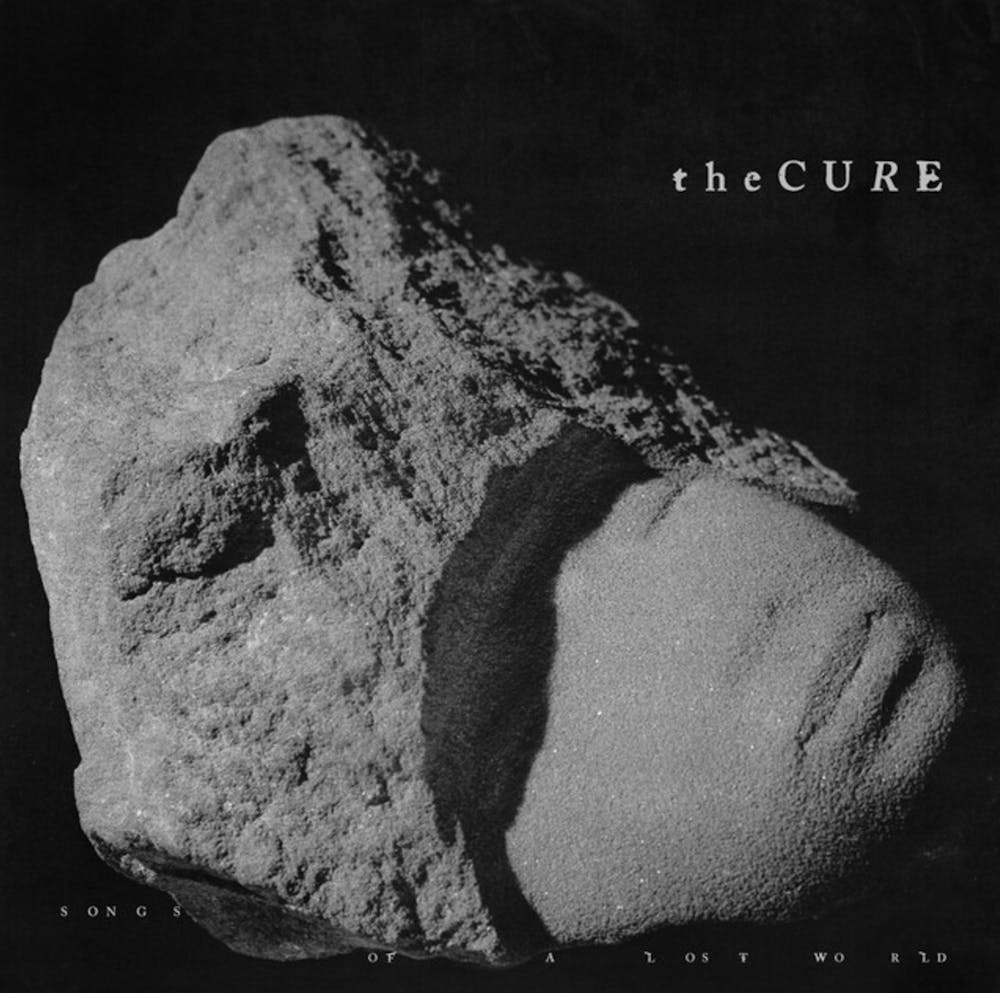On Nov. 1, rock band The Cure released its 14th album “Songs of a Lost World.”
The first album in 16 years from the goth-rock titans, “Songs of a Lost World” has been in the works for years.
In a 2019 interview with the Los Angeles Times, the band’s iconic frontman Robert Smith said that nailing down his vocals was the hardest part of making the new album.
“I keep going back over and redoing them, which is silly. At some point, I have to say ‘That’s it,’” Smith told the LA Times.
While The Cure is best known for upbeat hits such as “Just Like Heaven” and “Friday I’m In Love,” “Songs of a Lost World” recalls some of the band’s most critically beloved records like “Seventeen Seconds” and “Disintegration” — gothic, brooding, atmospheric and long.
None of the album’s eight songs are shorter than four minutes, with the longest being the aptly-named closing track “Endsong,” which clocks in at over 10 minutes.
Many of the songs feature several minutes of pure instrumentals, allowing the listener to be submerged into the record’s soundscape. Smith’s vocals often don’t arrive until well into the song, and when they do, he sounds just like he did on the band’s 40-year-old records. His voice has only grown richer as time has gone on.
The Cure’s angst-ridden lyrics are still present on “Songs of a Lost World,” but they have morphed from detailing the uncertainties of young adulthood and the dual passions and perils of love to focusing on the impacts of aging and grief.
In his interview with the LA Times, Smith spoke to the influence that death had on the album.
“It’s very much on the darker side of the spectrum,” Smith told the LA Times. “I lost my mother and my father and my brother recently, and obviously it had an effect on me.”
“Alone,” the album’s opening track, is a melancholic and hazy slow burn that is reminiscent of The Cure’s early 1980s output. The song opens with an instrumental intro that lasts over three minutes, before Smith delivers the record’s fitting opening line: “This is the end of every song that we sing.”
The nearly seven-minute-long track ends with the repetition of that line, now punctuated with the titular word.
Get content from The Daily Lobo delivered to your inbox
It would be easy to perceive Smith’s lyrics as nihilistic, especially since they are quite pertinent in our increasingly isolated world. However, that’s only a part of the story.
After opening up about the loss of his family members, Smith went on to say that the lyrics and sound of “Songs of a Lost World” are not “relentlessly doom and gloom.” There’s still a sense of hope and beauty within the record.
“And Nothing Is Forever” opens with a lush orchestral arrangement, setting the scene for a grand story of searching for love amidst the chaos. Throughout the expansive track, Smith comes to terms with aging, but still finds himself in pursuit of the same intimacy he’s been seeking for his whole career.
“Slide down close to me, in the silence of a heartbeat,” he croons in the song’s final moments — a tender, evocative lyric that puts words to universal-yet-unnameable feelings.
On “A Fragile Thing,” Smith touches on the ephemeral nature of intimate relationships. While he’s singing about romantic love, it’s clear that his musings are informed by his grief.
“Warsong” is the record’s gloomiest moment. Smith’s 21st-century anxieties cut deep; when he sings “All we will ever know is bitter ends, for we are born to war,” you know that, on some level, he’s right.
“Drone:Nodrone” is the most straightforward rock song on the record — a grandiose wall of noise that finds Smith pleading for answers amidst a loss of identity.
One of the album’s most beautiful-yet-heartbreaking moments comes on “I Can Never Say Goodbye.” The plaintive ballad directly addresses the loss of Smith’s brother.
“Something wicked this way comes, to steal away my brother’s life,” he sings in the chorus, refusing to beat around the bush in regard to his grief.
“All I Ever Am” finds Smith reckoning with the universal truth that loving another person isn’t enough — you have to love yourself first.
“Endsong” feels like the apex of The Cure’s entire discography. It’s over six minutes into the song when Smith begins to reminisce on his childhood and the loss of innocence that has followed. If this were to be the band’s final record, it would be a fitting end to a legendary run as one of the most influential rock bands of the past 50 years.
Elijah Ritch is a freelance reporter for the Daily Lobo. They can be reached at culture@dailylobo.com or on X @dailylobo






